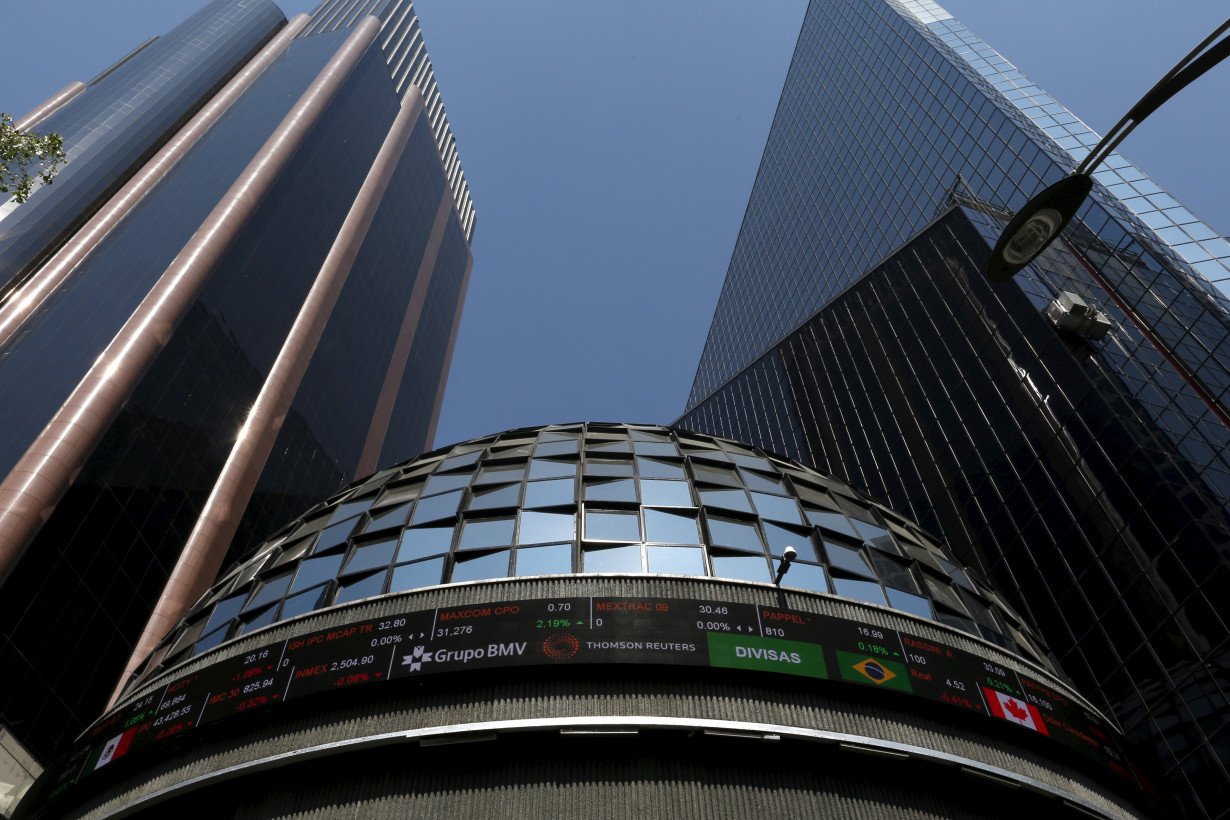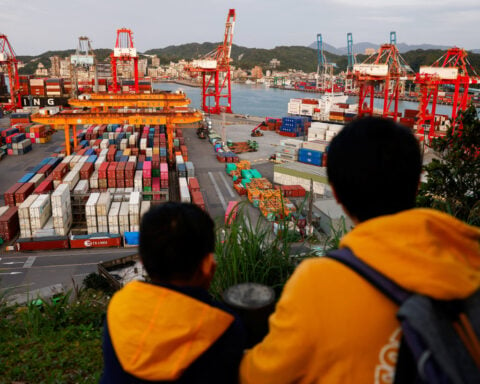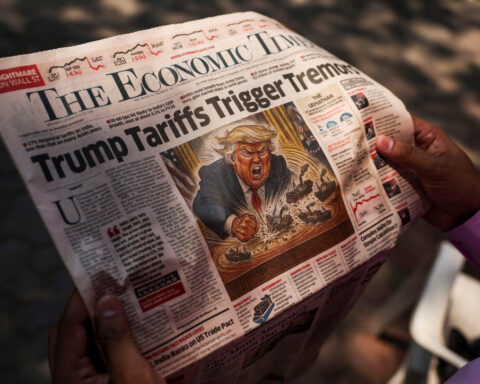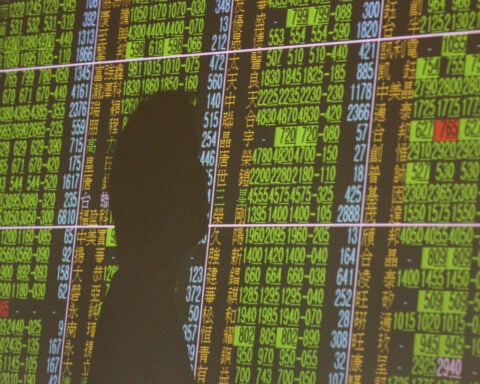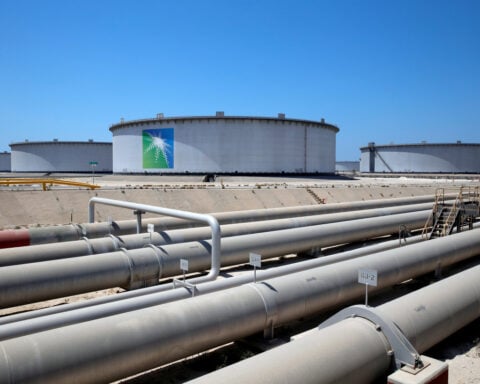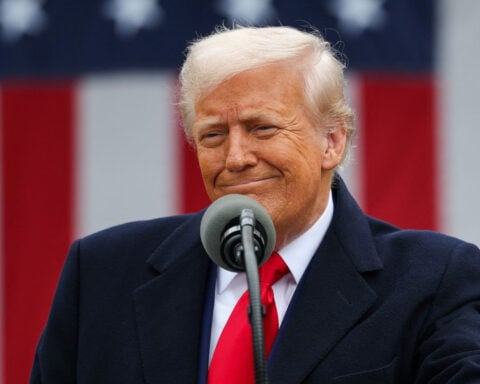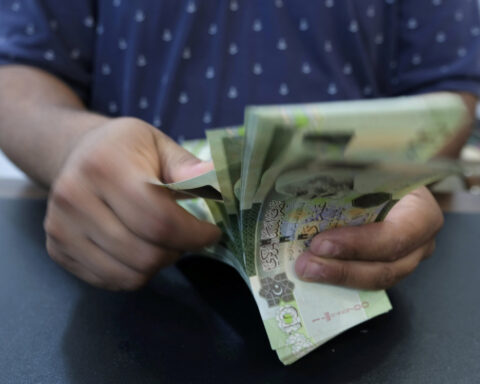By Nell Mackenzie, Carolina Mandl and Marc Jones
LONDON (Reuters) - Geopolitical tensions and a weakening economy are driving hedge funds to consider alternatives to investing in China.
Turmoil in China's property sector has rattled world markets and hurt the outlook for the world's No. 2 economy. Many U.S.-based hedge fund investors have cut their exposure to Chinese companies, according to Goldman Sachs.
Four hedge funds shared four ideas for alternatives to investing in Chinese assets. These do not represent recommendations or trading positions, which cannot be revealed for regulatory reasons.
1/ DISCOVERY CAPITAL MANAGEMENT
* Discretionary U.S.-based global macro hedge fund
* Size: $1.5 billion
* Founded in 1999
* Key trade: long Latin America, underweight, short China and Taiwan
Discovery founder and long-time investor in emerging markets, Robert Citrone, sees opportunity in Latin America, particularly in Argentina and Ecuador, where the results of presidential elections could drive asset prices up. He is also focused on Mexico.
"Other emerging market countries (in the world) don't have short term catalysts as Argentina, Ecuador and Mexico may have," he said.
He suggested telecommunications and cement companies in Mexico, besides its currency and rates. In Argentina, he favours energy companies, while in Ecuador he likes sovereign dollar debt.
Citrone also suggested short positions in China's yuan, property developers and banks, and said monetary and fiscal policy would need to be eased "dramatically" to avert a big property crisis, similar to the 2008 financial crisis.
While recent data shows policy measures have helped, China's economic outlook is clouded by its property slump, falling exports and high youth unemployment.
"The Chinese government is trying to put a band-aid where they need a tourniquet," Citrone said.
2/ GRAMERCY FUNDS MANAGEMENT
* EM investment manager
* Size: $6 billion
* Founded in 1998
* Key trade: Investing in mid-sized Mexican firms via private credit
Gustavo Ferraro, partner and head of capital solutions at Gramercy Funds Management, favours lending to mid-sized Mexican companies, such as those involved in power generation, real estate and logistics.
That's because China-West tensions and the COVID-19 shock have disrupted global supply chains.
Washington has pushed the idea of "friendshoring", replacing China's role in supply chains with friendly nations, with Mexico identified by economists as a major beneficiary.
"We get very involved in these companies and are influential in their choices especially regarding ESG (environment, social, governance)," said Ferraro.
"In power generation, logistics, real estate and across many industries, these corporates have not previously and currently been well served by public markets," he added.
3/ OPPORTUNITY
* Brazilian asset manager with a global macro hedge fund
* Size: $9.89 billion
* Founded in 1994
* Key trade: short yuan, long the U.S. dollar
Marcos Mollica, portfolio manager of the Opportunity Total fund, suggests taking a short position in China's yuan and a long position in the U.S. dollar given diverging economic paths.
"While the U.S. economy has proved resilient, China faces growth challenges," he said.
Higher for longer U.S. interest rates are likely to keep the dollar strong. China's sluggish economy meanwhile has hurt the yuan, which is down almost 6% against the dollar so far this year.
"China is facing a structural change. Infrastructure and housing can't continue being used as a growth lever as it has caused excessive leverage," he said.
4/ GREYLOCK CAPITAL
* Sovereign and corporate distressed debt investment manager
* Size: $950 million
* Founded in 1997
* Key trade: Investing in countries currently in default
Greylock founding partner and CEO, Hans Humes, believes while worries about heightened geopolitical tensions are impacting China's debt, Beijing might be helping repair sentiment towards a number of countries wallowing in default.
These would include the likes of Zambia, Ghana and Sri Lanka as they edge closer to restructure deals with global creditors.
Restructurings will allow investment firms like Humes' to strike a deal on the money they have also lent these countries which should then also pave the way for new International Monetary Fund programmes.
Humes expects a new ingredient to give these deals a special kick - so-called "Value Recovery Instruments" or VRIs for short.
Suriname, South America's smallest nation, has just set an example with a VRI that effectively pays out if recent oil discoveries off the country's coast boost government coffers.
Akin to a debt-for-equity swap, some fixed income traditionalists may not be keen to venture into the unknown, but Humes thinks VRIs could be a big boost to returns meaning investors should try to understand them.
"This is an option, it's not like we are building a Mars rocket here," he said.
(Reporting by Nell Mackenzie and Marc Jones in London and Carolina Mandl in New York; Graphics by Nell Mackenzie, Marc Jones and Riddhima Talwani; Editing by Dhara Ranasinghe and Alison Williams)

 Trump has begun another trade war. Here's a timeline of how we got here
Trump has begun another trade war. Here's a timeline of how we got here
 Canada's leader laments lost friendship with US in town that sheltered stranded Americans after 9/11
Canada's leader laments lost friendship with US in town that sheltered stranded Americans after 9/11
 Chinese EV giant BYD's fourth-quarter profit leaps 73%
Chinese EV giant BYD's fourth-quarter profit leaps 73%
 You're an American in another land? Prepare to talk about the why and how of Trump 2.0
You're an American in another land? Prepare to talk about the why and how of Trump 2.0
 Chalk talk: Star power, top teams and No. 5 seeds headline the women's March Madness Sweet 16
Chalk talk: Star power, top teams and No. 5 seeds headline the women's March Madness Sweet 16
 Purdue returns to Sweet 16 with 76-62 win over McNeese in March Madness
Purdue returns to Sweet 16 with 76-62 win over McNeese in March Madness
